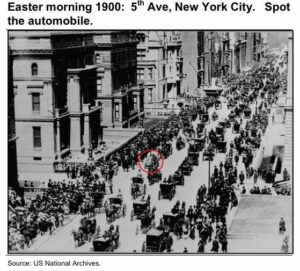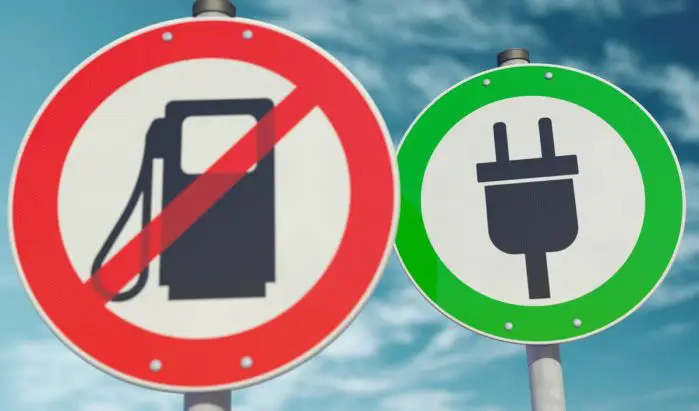Effects on the heat treatment industry
From 2030 at the latest, only emission-free cars are to be registered. The Federal Council is therefore planning that internal combustion engines will disappear from the streets in the long run. But what is the impact on the economy? How does this decision affect us – the heat treatment industry?
The end of the fossil age is approaching. Renewable energies are becoming more and more important and are slowly but surely ringing in the end of an era. Two pictures of Fifth Avenue at the beginning of the 20th century show how quickly such a structural change can happen.


Within 13 (!) Years, the previously undisputed means of transport, the horse-drawn carriage, was completely replaced by motor vehicles! Our roads could present a “similar” picture, because in exactly 13 years, according to the Federal Council, no more combustion engines will be allowed.
Effects on an entire industry
One thing should be said in advance: my interview partners and I are only referring to the heat treatment industry. Of course, a large number of other industrial sectors are also affected – but we will initially limit ourselves to the branch of industry that affects us.
“The development towards e-mobility is clearly continuing and what is also certain is that there will be consequences for the industry,” said Dr. Winfried Graefen, Technical Director of the HANOMAG hardening shop, of course. “An entire industry has to be prepared for a structural change, because an electric motor has much less hardened components.” Graefen further.
But does the entire industry now have to fear for its existence?
It is worth taking a look at the forecast values:
| 2015 | 2020 | 2025 | 2030 | |
| New vehicle registrations (worldwide) | 86 million | 102 million | 110 million | 120 million |
| Distribution according to engine type | ||||
| Internal combustion engine | 97% | 86% | 68% | 48% |
| Hybrid engine | 2,5% | 12% | 26% | 39% |
| Electric motor | 0,4% | 2% | 6% | 13% |
(Source: forecasts from ZF Friedrichshafen, presented at Getpro 2017, congress on transmission production)
These figures make it clear that the international market will shift in favor of the electric motor by 2030. Both in relative and in absolute terms, the number of new registrations of internal combustion engines is falling. An industry will have to change now in order to survive in the future.
Change? Yes! – Anxiety? No!
“These numbers also put the headlines and fears into perspective to a certain extent.” Ing. Jörg Kleff, Head of the Hardening and Materials Group Lake Constance at AWT. Because in 2030 approx. 50% of vehicles will still be registered with a conventional internal combustion engine, approx. 40% will be registered with an internal combustion engine with an additional electric motor (hybrid engine) and only 13% will be newly registered with a pure electric motor.
The heat treatment industry will definitely be needed by 2030 and generate a healthy order situation.
“However, if only emission-free cars were allowed to be registered from 2030, the need for hardened parts would decrease massively – but not disappear entirely. Spare parts for cars with combustion engines as well as shafts and planetary gear sets for electric drives still have to be hardened. Ing. Jörg Kleff.
The industry should therefore start rethinking early enough – the development is not frightening and there is still enough time to react. In 13 years’ time, gasoline engines won’t fare like the horse-drawn carriage on Fifth Avenue – but we should be warned!
discussion
What do you think? Will there be a “tough” line and the approval ban be carried out from 2030? Will there be transition periods? Or is the current discussion about a ban on diesel vehicles in major German cities helping to reconsider the whole concept of “banning internal combustion engines”?
We are excited to hear your opinions!


Recent Comments